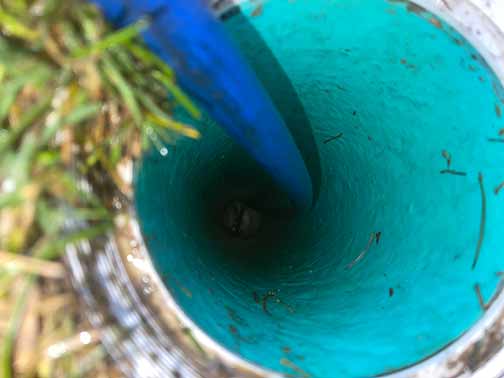
The drainage lines in your home are probably the most hardworking section of your plumbing, says Fireside Management. All used-up water from your house ultimately finds its way into the drainage lines. That includes greywater from sinks, showers, and appliances and blackwater from the toilet.
This wastewater, with varying levels of contamination, is dumped into the drainage system for onward transportation to the municipal sewer lines in the streets. If your drainage pipes stop working, your entire home can become completely unlivable very quickly.
This is why issues affecting your drainage system should be taken seriously. Drainage systems experience more stresses that homeowners are unaware of, partly because most drainpipes are underground, and symptoms of their problems are not always visible inside the home.
However, your drainage system is not unbreakable and cannot last forever. All drainage systems have a projected lifespan. That is based on the manufacturer’s estimation of how long it will take the materials in the system to wear out and lose their functionality.
But the reality is that most drainage systems don’t make it to their projected expiration date. Other factors can intrude and cut short the life of the system. What are these factors, and what can you do to protect your drainage system?
Factors that affect the longevity of your drainage system
- Type of material
The life of a drainage system partially depends on the kind of materials in it. Cast iron pipes (75 – 100 years), PVC (indefinite), brass (40-70 years).
- Quality of installation
Improper compaction methods, inadequate slope, substandard materials, and faulty connections can cause issues in your drainage system.
- Climate and soil conditions
Extreme temperature changes and heavy rainfall. Freeze-thaw cycles and the soil chemical composition also impact the lifespan of the drainage system.
- Water quality
The amount of dissolved minerals and debris in the water passing through the pipes can accelerate the rate of wear.
- Rate of abuse
If the drains are misused by the home’s residents, it will make the drainage system vulnerable to problems and prone to failure.
- Quality of maintenance
Drainage systems that are cared for will perform better and exceed the lifespan set by the manufacturer.
What can you do to prolong the lifespan of your drainage system? Based on the factors listed above, three specific areas are firmly within your control as a homeowner: rate of abuse, quality of maintenance, and quality of installation.
By keeping an eye on your drainage system to ensure that it is not abused and also hiring a trusted plumber to carry out proper maintenance at the right time, you can avoid most of the problems that cause premature failure of a drainage system. One way to do this is with hydro jetting.
How hydro jetting protects your drainage system
Hydro jetting protects drainage pipes from the corrosive effects of the dissolved salts and chemicals in wastewater? Hydro jetting also stops the accumulation of debris inside your drainage pipes. Drain lines jetted annually will exceed expectations in terms of performance and longevity.
What is hydro jetting? How does hydro jetting work, and why is it an effective method for prolonging the life of a drainage system? Hydro jetting is a drain-cleaning technique that uses high-pressure water to remove buildup from a clogged drainage line. Here is how hydro jetting works.
Hydro jetting uses a flexible hose with a high-pressure stainless steel nozzle at one end. The other end is connected to a pressurizing machine, which is hooked up to a water tank. To clear the blocked drain, the hose is inserted into the line via a cleanout or other access point.
Once in place inside the line, the pressurizing machine is used to shoot water into the pipes at very high pressures. The force of the water drives the steel nozzle into the pipe, allowing it to blast away the debris inside the line. Hydro jetting will remove sludge, grease, and even tree roots.
At the same time, this process does not harm the drainage pipes. This is because the water pressure used in the operation is carefully calibrated to match the strength of the pipes. This ensures that pipes can withstand the force of the pressured water coursing through them.
What are the benefits of hydro jetting?
- Thorough cleaning
The main advantage of a hydro jetting service is that it doesn’t only remove the buildup inside your drain lines. It washes the pipes by flushing all the debris out of the system.
- Promotes maximal flow
Improved flow helps to reduce the rate of buildup. Lower buildup rates help to reduce the quantity of corrosive buildup stressing the pipes.
- Removes stubborn debris
Getting rid of scale, sludge, and tree roots in a drainage pipe is difficult, but hydrojetting makes easy work of these problems.
- Suitable for preventive maintenance
When done on a schedule, instead of only when the pipes are clogged, hydro jetting actually stops the processes that lead to clogs and blockages.
What are the steps before hydro jetting a drainage line?
That brings us to why you need a reliable plumber when trying to preserve the life of your drainpipes. A reliable plumber with experience in hydro jetting will guide you in using this method for lasting rewards. Are you looking to have your drainage systems jetted?


